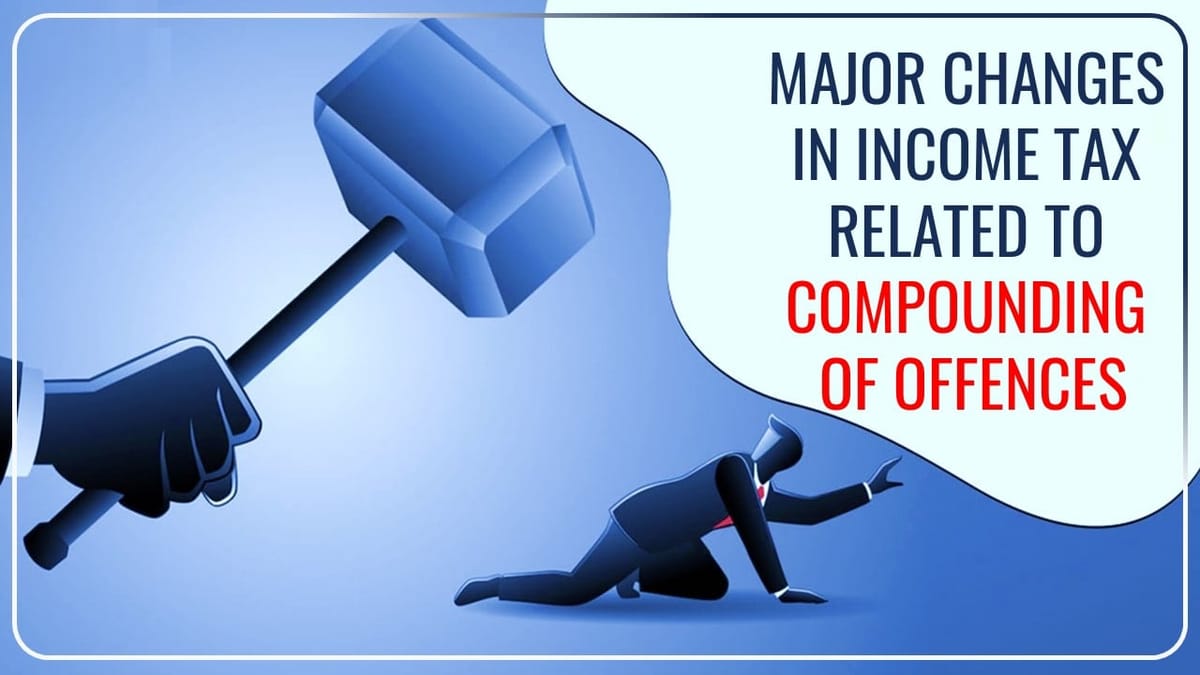The State Finance Minister in Rajya Sabha stated that major changes in Income Tax related to the compounding of offences.
Priyanka Kumari | Dec 12, 2023 |

Major changes in Income Tax related to compounding of offences
The Ministry of State Shri Pankaj Chaudhary in the Ministry of Finance in a written reply to a question raised in Rajya Sabha said, “Major changes in Income Tax related to the compounding of offences”.
Ms. Saroj Pandey asked these questions in Rajya Sabha:
Will the Minister of Finance be pleased to state:
(a) whether Government has taken any measures to exclude minor offences from the category of crime in the matter of direct taxation; and
(b) if so, the initiatives taken in the realm of tax administration in this regard?
The Ministry of State replied:
(a) Yes, Sir.
(b) The Income-tax Act, 1961 (‘the Act’) has been amended so as to decriminalise Section 276A (entailing imprisonment of minimum six months extending up to two years) relating to failure of liquidator to give notice of his appointment to the Jurisdictional Assessing Officer within 30 days or failure to set aside notified amount from, or parts with any of the assets of company under liquidation. The Finance Act, 2023, with effect from 01.04.2023, has introduced a sunset clause in section 276A of the Income-tax Act, 1961 which prescribes that no fresh proceedings shall be initiated under section 276A on or after 01.04.2023.
Further, CBDT has issued revised guidelines for compounding of offences under section 279(2) of the Act on 16.09.2022 with reference to various offences covered under the prosecution provisions of the Act.
Some of the major changes made for the benefit of the taxpayers include:
(i) Making offence punishable under Section 276 of the Act as compoundable;
(ii) The scope of eligibility for compounding of cases has been relaxed whereby case of an applicant who has been convicted with imprisonment for less than 2 years being previously non-compoundable, has now been made compoundable;
(iii) The discretion available with the competent authority has also been suitably restricted;
(iv) The time limit for acceptance of compounding applications has been relaxed from the earlier limit of 24 months to 36 months now, from the date of filing of complaint;
(v) Procedural complexities have also been reduced/ simplified; and
(vi) Specific upper limits have been introduced for the compounding fee covering defaults across several provisions of the Act. Additional compounding charges in the nature of penal interest @ 2% per month up to 3 months and 3% per month beyond 3 months have been reduced to 1% and 2% respectively.
In case of any Doubt regarding Membership you can mail us at [email protected]
Join Studycafe's WhatsApp Group or Telegram Channel for Latest Updates on Government Job, Sarkari Naukri, Private Jobs, Income Tax, GST, Companies Act, Judgements and CA, CS, ICWA, and MUCH MORE!"